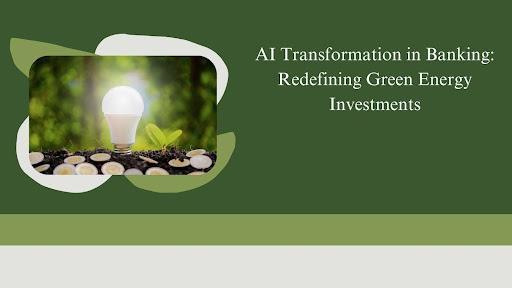
A recognized authority in the intersection of finance and technology, Blue Swamy presents groundbreaking insights into the application of artificial intelligence in transforming banking operations. His work emphasizes the profound impact of AI-driven tools in fostering renewable energy investments, positioning them as critical drivers for sustainable economic growth.
Revolutionizing Middle Office Functions
The middle office of financial institutions is transforming with AI, replacing manual inefficiencies with automation. Machine learning has cut error rates from 3.2% to 0.3% and boosted processing speeds twelvefold, enabling real-time data handling at scale.
These innovations enable financial analysts to focus on strategic tasks, such as assessing complex green energy projects, while automated systems handle data integration, compliance checks, and risk management with unparalleled precision.
Core Technologies Driving Efficiency
AI integration in banking thrives on advanced technologies like machine learning, deep learning, NLP, and RPA. These innovations improve market predictions, automate 92% of tasks, streamline compliance processes, and reduce document review cycles from days to hours.
Green Energy Project Assessment: A New Era
AI has revolutionized how banks evaluate renewable energy projects. Advanced analytics now process terabytes of data across thousands of parameters daily. For instance, machine learning models analyze 30 years of weather data, enabling accurate predictions for energy generation potential with over 95% accuracy. Moreover, automated systems can identify optimal project sites within hours, a process that once took weeks, leading to a 72% cost reduction in preliminary assessments.
This comprehensive approach extends to risk quantification, with AI systems analyzing 650 risk parameters simultaneously. Such precision has improved return on investment predictions by 98%, ensuring that renewable projects are not only feasible but also economically viable.
Transforming Carbon Markets with AI
AI is reshaping carbon market operations by introducing efficiency, transparency, and scalability. Carbon credit verification times have plummeted from 18 days to just 32 minutes. Blockchain integration further enhances these processes, automating carbon credit transactions across multiple platforms and maintaining real-time synchronization.
Additionally, AI-driven market intelligence tools analyze trading patterns to optimize liquidity and detect fraudulent activities, achieving a fraud detection accuracy of 94%. These advancements contribute to a more robust carbon trading ecosystem, fostering global efforts to combat climate change.
Empowering Energy Transitions
The banking sector is harnessing AI-driven energy transition analytics to promote sustainable investments and tackle global energy challenges. With 97.5% accuracy in predicting market trends, machine learning enables precise portfolio optimization. Real-time monitoring tools track energy market fluctuations, providing early warnings of significant shifts. These advancements have enhanced decision-making accuracy by 88%, empowering financial institutions to make informed choices while mitigating risks. Additionally, AI has reduced investment losses from market transitions by 71%, highlighting its transformative role in shaping a sustainable financial future.
Addressing Challenges in AI Adoption
Despite its transformative potential, AI implementation is not without challenges. Financial institutions face hurdles in scaling infrastructure to meet increasing data processing demands. Integration with legacy systems remains complex, often leading to temporary operational disruptions during the transition phase. Moreover, the need for specialized AI talent is growing, with organizations investing heavily in training and recruitment.
Data security and regulatory compliance are equally critical concerns. AI systems now manage millions of sensitive transactions daily, requiring robust encryption and advanced monitoring tools to safeguard against breaches. As regulatory frameworks evolve, banks must allocate significant resources to ensure compliance across jurisdictions.
The Road Ahead
The future of banking, as Blue Swamy emphasizes, rests on leveraging AI’s transformative potential. By revolutionizing renewable energy assessments, optimizing carbon markets, and supporting energy transitions, AI is creating a sustainable financial ecosystem. Its continued evolution promises to address global energy challenges, offering timely solutions for stakeholders in finance and energy.